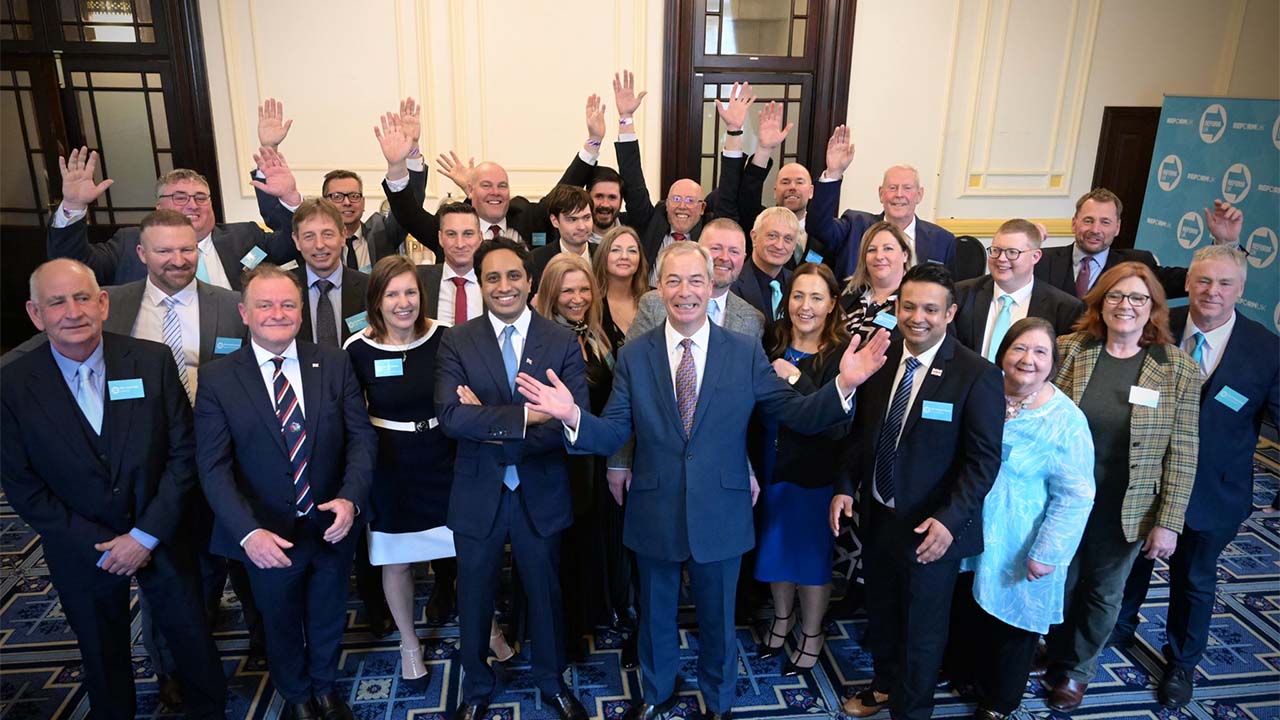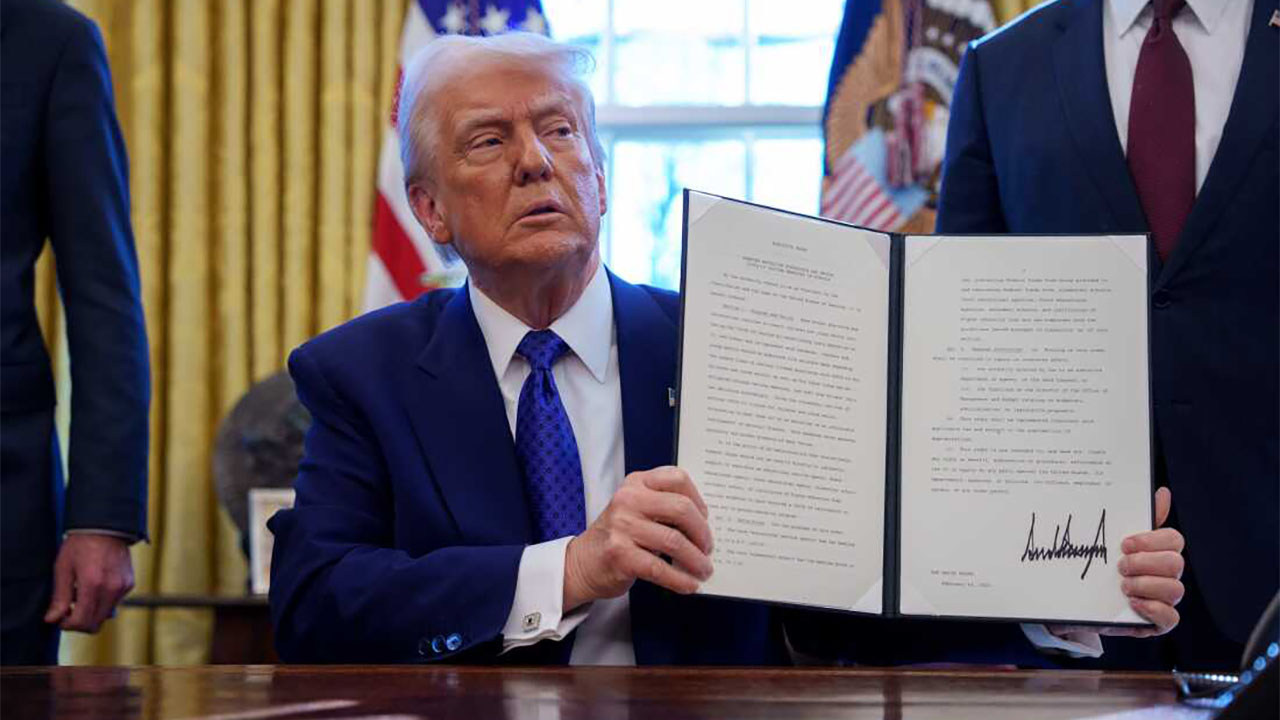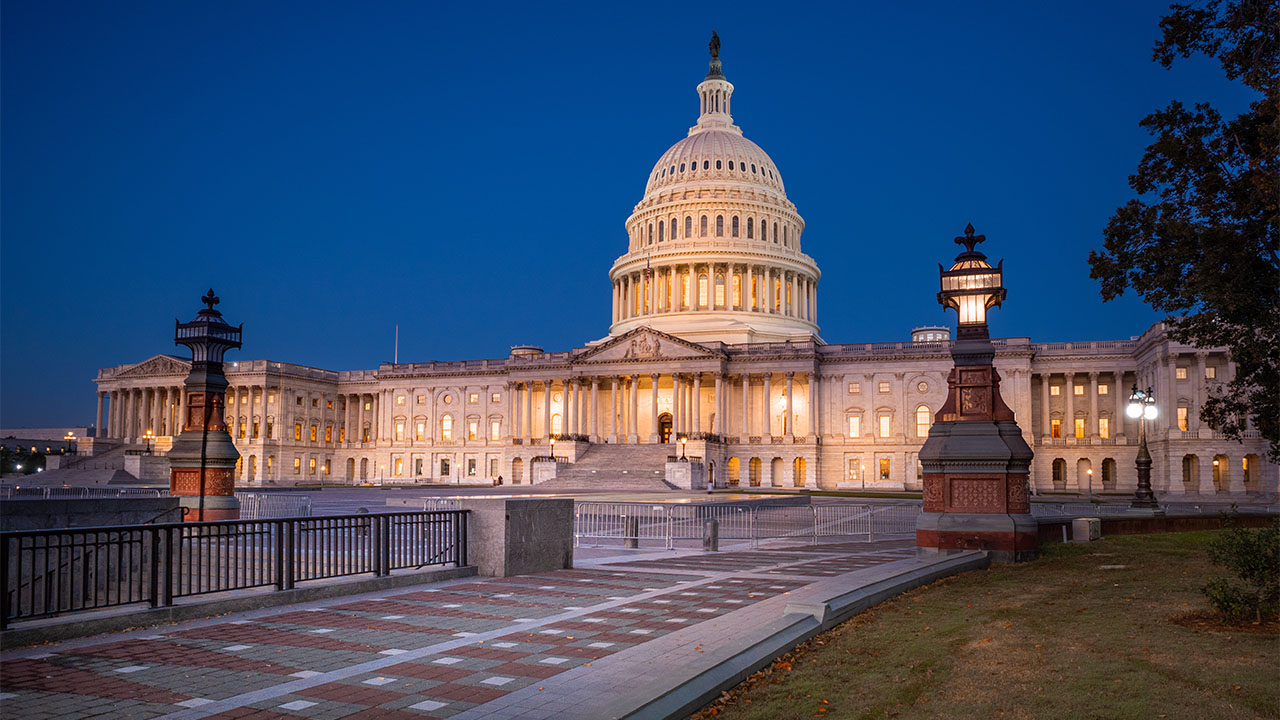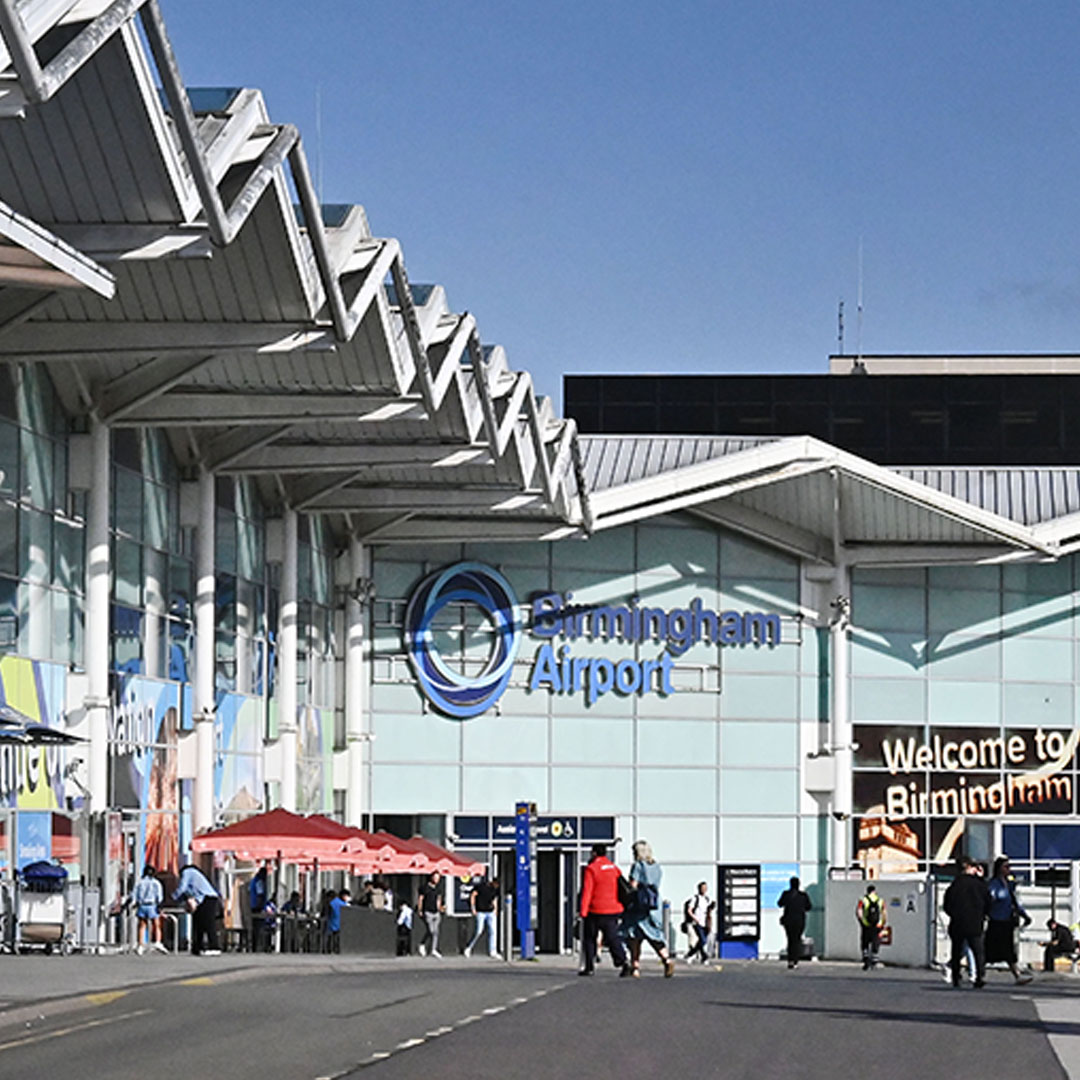Last week’s local government elections sent shock waves through the already disrupted UK political system.
Much of the subsequent conversation was about what went wrong for the two mainstream parties, what these results mean if extrapolated to a General Election and would that see Nigel Farage in Number 10 Downing Street.
It has also been a busy week for those of us working in public affairs and government relations. I have fielded calls from political contacts, business leaders and campaigners keen to talk through the goings on.
Politics, I’m fond of telling clients, is a code. Public affairs consultants are the code breakers.
Normally, like most puzzles, there are clues to help, But not so much this time, you have to look deeper.
Reform UK added more than 650 councillors to its ranks without even issuing a manifesto. It didn’t present sitting council leaders who could be judged on their record to date, and other than its now 5 MP’s – fewer than the Ulster Unionists but one more than Plaid Cymru – it has no track record in democratically elected office.
When you consider those facts, the scale of their victory from a standing start is even more impressive.
Reform UK now finds itself having to search its ranks to find suitable council leaders, cabinet members, local government spokespeople, whips and group officers, as well as policy experts who can navigate the gordian knot of local government finance and legal services.
New York political heavyweight Mario Cuomo is famous for saying: ‘you campaign in poetry, you govern in prose’, but for many new Reform politicians mastering the basic skills of the language will be an immediate challenge.
Understandably, businesses, community groups, third sector service providers and organisations want to know what to expect from the new administrations in the 10 councils and 2 combined authorities under Reform UK control.
Before we get to that we need to step back and consider how we got here. There are some clues in the past.
Reform UK, born out of the Brexit Party and before that the UK Independence Party, has occupied a berth broadly on the right of UK politics, and even a casual review of the election results confirms that those communities where “Leave” beat “Remain” in the Brexit Referendum continue to make up the largest bodies of support for Reform UK.
And while the vote for Labour and Conservative has clearly collapsed, turnout was also a miserable 31% compared to the still poor 60% who turned out for the General Election last year. To me, it appears Conservative supporters have got out of the habit of voting – but while choosing to turn their back on their traditional party they are not necessarily rushing to support anyone else, preferring to stay home and ride it out.
For Labour, the signs are more worrying as its traditional voters appear to be switching their allegiances, not just to Reform UK but further left to The Greens and others.
We must also consider the change to the voting system which has taken place in this election, and further plans to reform – pardon the pun – local government by abolishing two tier systems in favour of unitary authorities. There are perhaps some insights to be gained from these surrounding conditions.
First Past the Post helped Reform UK win this time where previous elections with a transferable vote stymied their hopes. Secondly, some of the authorities where Reform UK has won control are set to be abolished in the coming months and seem, well, a bit irrelevant.
But let’s not join the ranks of defeated politicians in trying to explain these results away as the consequence of the cyclical nature of elections or some systemic change – they are what they appear to be – catastrophic for the mainstream parties. Yes, there are some unusual circumstances, but Reform UK has firmly planted its flag on the electors’ lawns.
No doubt, Reform UK remains a party of protest votes – it is against more than it is for – but in that protest it has successfully positioned itself as the one party willing to talk about, address and now potentially act on the concerns citizens feel other parties either don’t or won’t tackle.
And the most visible and headline grabbing of those is immigration.
It was a powerful factor in the Brexit vote and restricting the numbers of people arriving on Britain’s shores has not diminished since then, if anything, quite the reverse.
While immigration is not a topic local government has much control over, it has served as a lightning rod for general dissatisfaction – and when issues around crime, schooling, limited housing, or services at breaking point are factored into that argument, they become potent political issues on the ground.
The other big motivator of Reform UK votes was the idea that council’s waste money – largely on vanity schemes, projects described as ‘woke’ or “political correctness”, or with contracts and deals which aren’t delivering value for money.
Merging concerns about immigration with tax and spend has allowed Reform to position itself as being a vote for a return to ‘common sense’.
These twin issues will remain at the heart of Reform UK’s agenda in the coming months.
We can also look for clues in the company Reform UK has been keeping.
Reform UK, and its leader Nigel Farage in particular, are captivated by the MAGA movement in the US and the populism spouted by President Trump and his acolytes like Elon Musk.
Already the newly elected Metro Mayors in their ranks are talking about local DOGE – Department of Government Efficiency – units to ‘root out’ waste, inefficiency and corruption.
Expect to see firebrand Lincolnshire Mayor Andrea Jenkyns and whoever becomes leader of Lancashire or Staffordshire Councils wielding a chainsaw for some photo opportunity on their first day in the chamber.
It will be great theatre. It will be agenda setting. It will be headline grabbing. And it will be fantastic politics for two reasons.
First, Reform UK has no intention of trying to fundamentally fix local government. Think about it, if the Council you lead is disappearing in a few months’ time, why rearrange the deck chairs now? The challenges councils face in providing Social Care, Children’s Services and supporting the most vulnerable are enormous, and without a huge review in central government funding or hiking local business rates and council taxes, the money just isn’t there.
The second point, and perhaps the most significant, is that many people already believe councils are wasteful and inefficient. When asked to provide evidence they struggle to give you concrete examples, but such has been the relentless reputational assault on local government for years, the idea that it’s a web of side deals, special interests and insular priorities has firmly taken root.
Therefore, businesses, organisations and communities can expect their Reform UK-led authorities, rather than fixing things, to be relentless in looking to expose waste and corruption, especially where the trail leads back to a rival political party. They will be looking to maintain the impression that things are rotten in the town hall, and money is being squandered on undeserving causes and issues.
And we will gather more clues from Reform UK as time moves on.
Clearly conscious of the weight of expectation to indicate what its local government priorities are, Reform announced its first policy on Bank Holiday Monday – namely, ‘Only the Union Flag, The Cross of St George, or the County Flag will be flown above the Town Halls they preside over’.
Predictably, Labour sources condemned the move, thus playing further into Reform’s hands who revel in these ‘patriotic media battles’ and the headlines they produce, especially on the 80th anniversary and national remembrance for VE Day.
For Farage, this is like shooting fish in a barrel, a fight on his terms. Expect to see more political foe baiting. Cool heads must prevail.
And we will learn much from the senior voices who do emerge. With a new taste for power, don’t be surprised to see many freshly-minted Reform UK council leaders looking for selection in Metro Mayor or Westminster seats pretty sharpish.
For that, the narrative that got them elected must be continued and, with a little more scrutiny, they may reveal a little more about themselves and their beliefs.
While they may not create formal DOGE structures, the council auditors will be out in force. The expenses and costs of running an authority will be scrutinized; contracts for renewal will be paused; grants, awards and subsidies highlighted.
If you are the recipient of local authority money – to provide a service, to address a social issue, to promote tourism, culture or the arts – en garde!
As is often the case, clues can be sought and lessons can be learned from the US.
When Trump took the reins and his MAGA disciples rose to prominence in county, city and state jurisdictions the same playbook was enacted.
Cities which only a few years earlier declared themselves ‘Sanctuary Cities’ – limiting their cooperation with federal immigration authorities or adopting policies to protect undocumented immigrants – quickly saw their federal funding shut down and State laws passed to make ‘no-cooperation’ an offence.
Trump also declared war on ‘Woke’ and has pulled funding and support for institutions – universities, supplier businesses, local authorities, health and care services – who have Diversity, Equality and Inclusion departments and policies.
While many suspect a more ‘socially conservative’ viewpoint sits behind these decisions, it has won support amongst the President’s core voters, with the media and influencers that back him, and when couched as ‘cost saving’ or ‘anti-corruption’ has met the approval of many who have been sympathetic to his cause.
Note, none of these moves have contributed much to significant change in the US, but they have defined the argument and continued to polarise the debate – us v them, left v right, conservative v liberal – however they determine it is useful to divide the electorate.
So look out for clues in the fights Reform UK picks
Reform UK will use its local power bases to challenge the Labour Government.
It will, according to its Chairman Zia Yusuf, use “judicial reviews, injunctions, and planning laws” to take on the government. It will do the same to stop ‘Net Zero’ or ‘renewable energy developments’ tying the council and government up in lengthy and very expensive litigation and court proceedings.
But for Reform, that is a price worth paying. What it does is establish them as ‘the opposition’.
Wisely, businesses and organisations in the US have got ahead of much of this. Auditing their own actions, finding savings, controlling costs and demonstrating how their actions and programmes were of value to citizens and align with core values shared by many, has become a mission.
They correctly reckoned it was better to get their own house in order than be forced into an untenable situation of being audited through a media and political lens.
Business leaders were also careful not to jump too far or too high at the President’s request, rightly looking to balance the obligations and responsibilities they have with their staff, their customers, suppliers and communities as much as pleasing the White House.
It is a fine line. It may be temporary. That is why smart organisations are working with crisis communications and risk management consultants to look forward, map their issues, and to understand their stakeholders’ opinions and needs.
They are also seeking and taking advantage of opportunities to create and enter dialogue and discussion with the officers and political leads to find common ground, and they are organizing and attending industry wide events and summits to embed themselves in the crowd rather than being the outspoken ‘tall poppy’ who attracts the swinging scythe.
These are relatively unchartered waters. There will be more clues revealed in the coming weeks and organisations who are interested in exploring their responses and reactions in more detail are welcome to reach out to discuss.













